The Economic Impact of the Abraham Accords After One Year: Passions vs. Interests
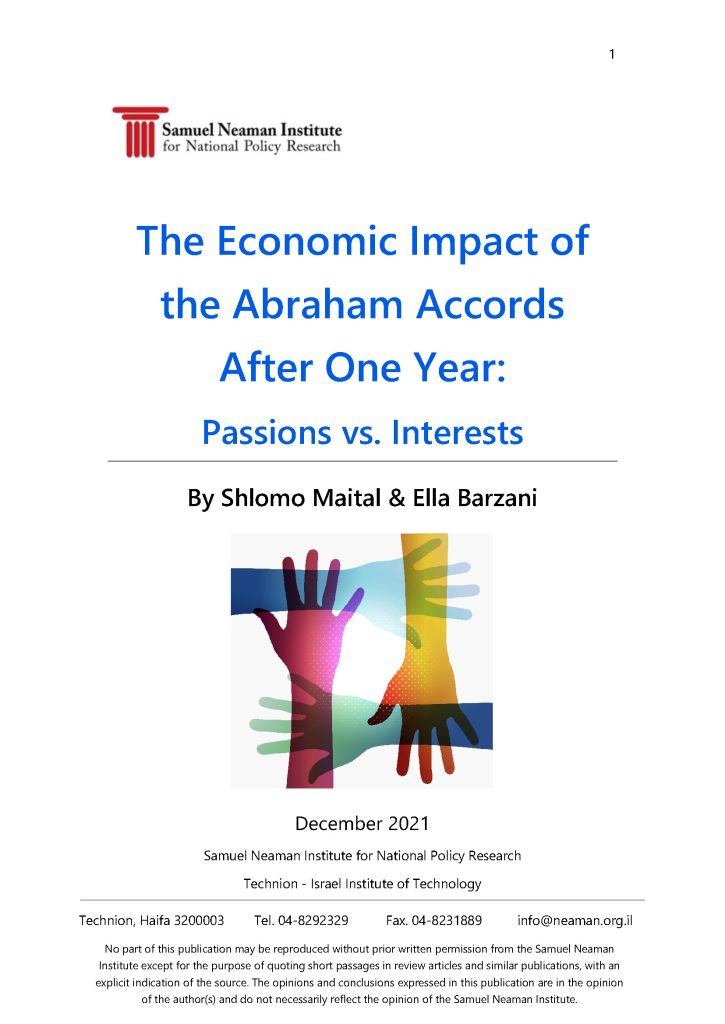
This brief essay summarizes research on the economic benefits of the Abraham Accords, flowing to the five nations involved: Israel, Morocco, United Arab Emirates, Bahrain, and Sudan. Israel is seen so far as reaping the largest share. The agreement with the United Arab Emirates is by far the most significant, for the two nations. The […]
Separation of Organic Waste – at the Source or at a Facility?
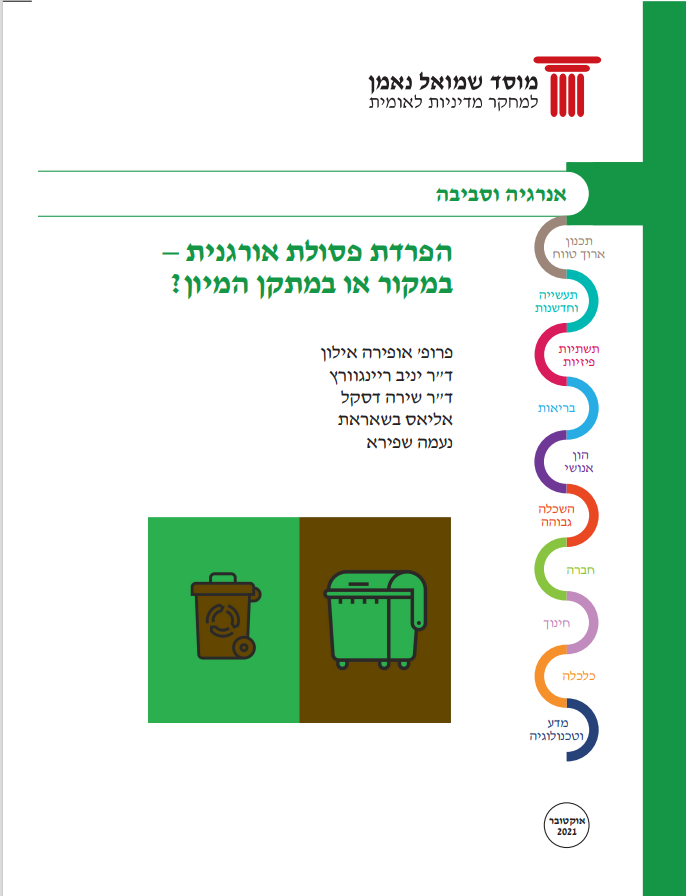
The waste management in Israel is in a deep crisis – the legal framework and waste treatment infrastructure are lacking; recycling rates are low compared to OECD countries and the amount of waste produced per capita is growing every year. The waste management in Israel is in a deep crisis – the legal framework and waste […]
Arab minority participation in collective action for provision of public goods in the general Israeli society.
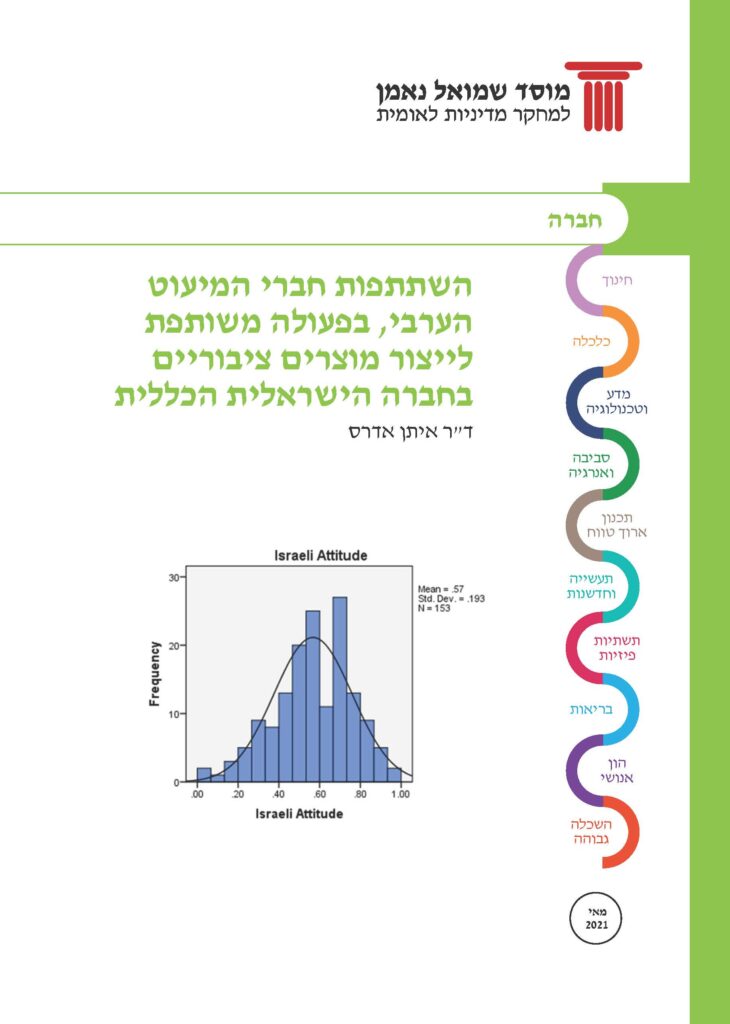
The societal and economic integration of the Arab minority is considered an essential factor for Israel.This research inquires how Arab minority members resolve the social dilemma of participation in collective action at the general society level.The recent unrest (May 2021) which un-stabilize co-existence and integration, poses a strategic challenge for Israel as a liberal democracy. […]
Recommendations, Policies and Goals for the state of Israel – Leaders’ Summit on Climate Change Earth Day April 22nd -23rd 2021
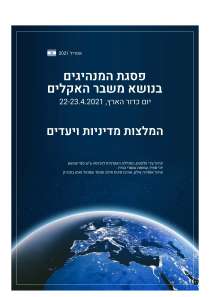
The newly inaugurated President of the USA, Mr. Joe Biden, has recently called for a virtual meeting of 40 world leaders to discuss the global climate crisis. The Prime Minister of Israel, Mr. Benjamin Netanyahu, has also been invited to this summit, which will be held on the 22/4-23/4, Earth Day. Alongside the economic future […]
Energy Forum 49: Integrating hydrogen into the Israeli energy sector
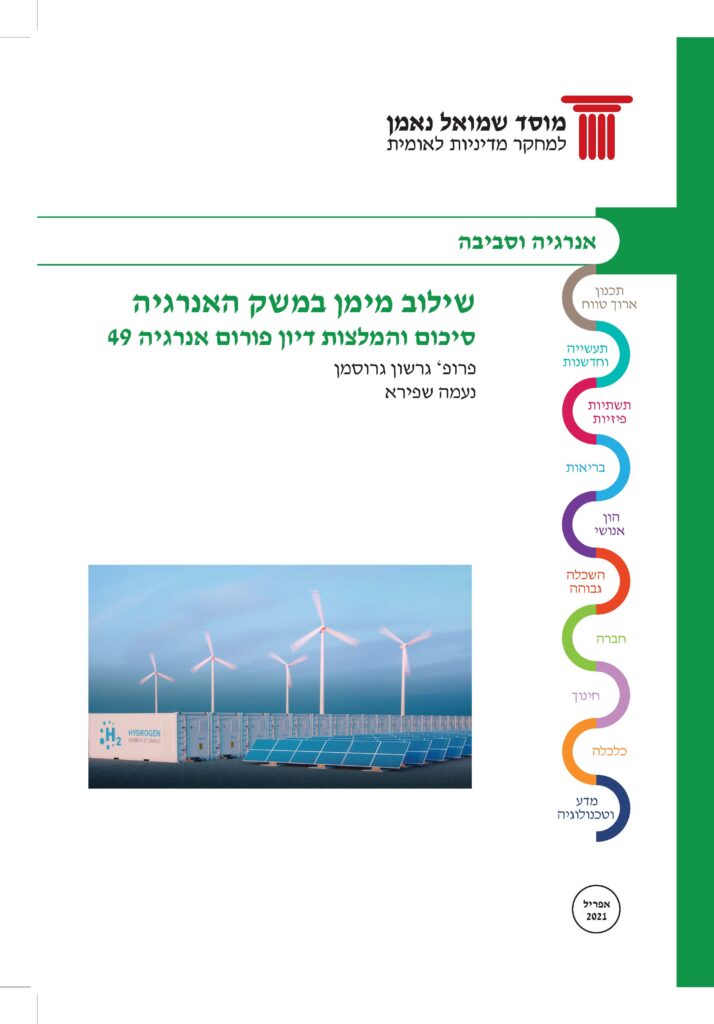
Hydrogen is the most common element in nature but rarely exists in its pure form in nature. It is possible to produce hydrogen from water through the electrolysis process by using electricity. In addition, it is possible to produce hydrogen from organic materials, such as natural gas and coal, using several methods of reforming and […]
Industrial symbiosis – barriers for implementation in Israel
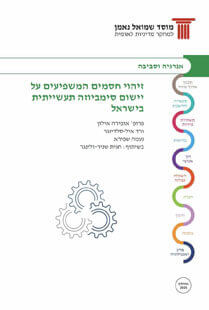
Industrial symbiosis is defined as wastes or by‐products of an industry or industrial process that used as a resource or raw materials for another. The purpose of industrial symbiosis is to create loops of materials while minimising the leakage of natural resources as water, energy and waste – demonstrating some key parts of a circular economy, at a local scale […]
Build Back Better: Toward a Visual Strategic Plan for Successful Emergence from COVID-19 – The Case of Israel Part III
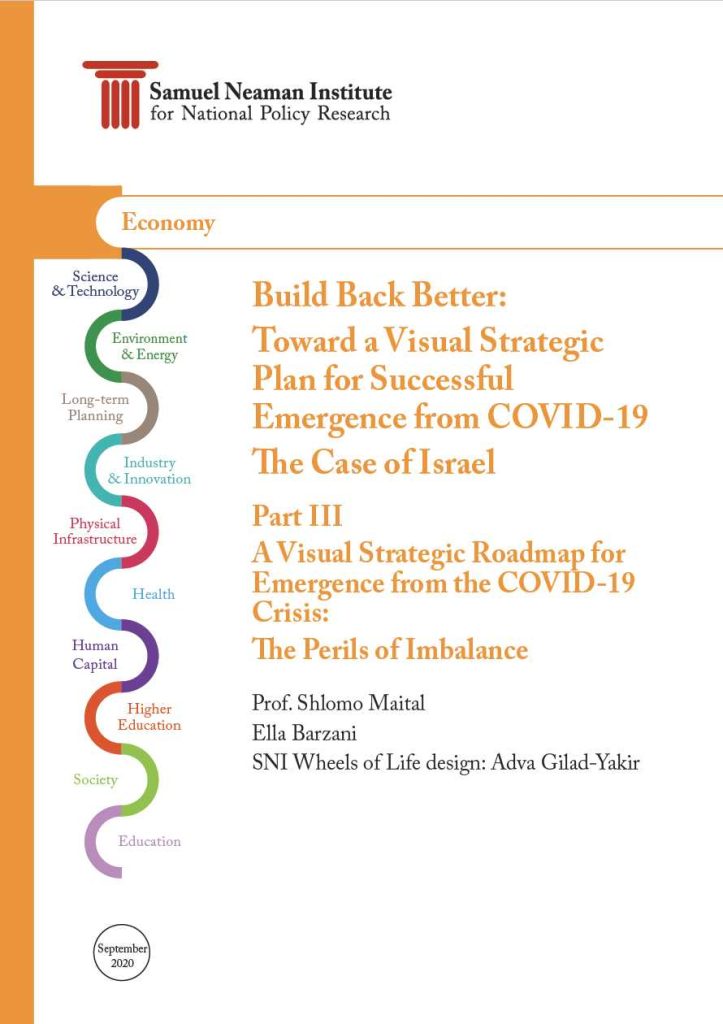
This report is Part III of a three-part research paper, Build Back Better: Toward A Visual Strategic Plan for Successful Emergence from COVID-19 – the Case of Israel. In this essay we propose a strategic long-run plan for Israel, as it emerges from the COVID-19 pandemic. employing a visual approach for benchmarking economic, social and […]
Build Back Better Toward a Visual Strategic Plan for Successful Emergence from COVID-19 – The Case of Israel Part II. SWOT Analysis A Global Benchmarking Study of Israel
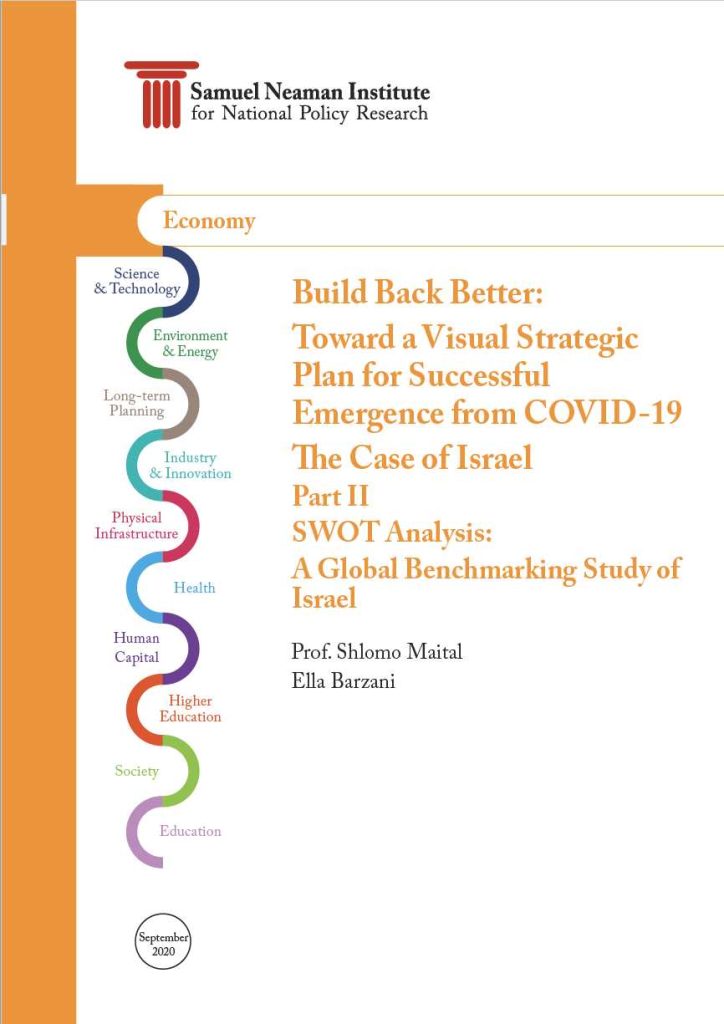
This report is Part II of a three-part research paper, Build Back Better: Toward A Visual Strategic Plan for Successful Emergence from COVID-19 – the Case of Israel. In it we present a SWOT analysis of Israel’s strengths and weaknesses, risks and opportunities, based on global benchmarks. It is based on a new book by […]
Build Back Better Toward a Visual Strategic Plan for Successful Emergence from COVID 19 The Case of Israel Part I
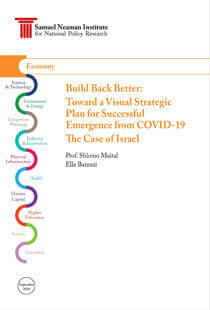
This three-part research paper proposes a strategic long-run plan for Israel, as it emerges from the COVID-19 pandemic. It is based on three key sources: a landmark pre-pandemic UN report, on how nations can build back better after natural disasters, along with related research, (See Part I), a new book by Ruchir Sharma, 10 Rules […]
Reforming the legislative process in the Knesset: “House of Cards” or House of Legislature?
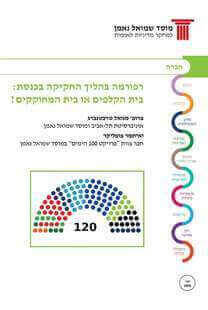
We lay out here a proposal for reforming the rules of the game that govern the behavior of the members of the Knesset (MK’s), in light of the diminished trust of the public in the Knesset. We identify three main failures: the lack of real debate, the fact that MK’s don’t seek wide consensus but […]
